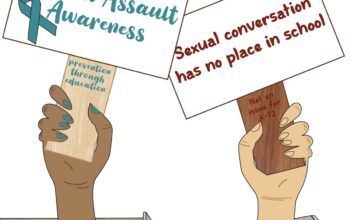Jack Ludtke
Class of ’13
(This update on 3/28 corrects some factual inaccuracies published in the March edition of the Courant.)
Privacy in journalism, always a hot button topic, was reopened for many New Canaanites when Teri Buhl stood trial on Mar. 22. Buhl, a reporter who is accused of using an online alias to post material from a teenage girl’s journal on Facebook as part of her research for a story, is a notable case of journalistic integrity, or lack therof, in our community. The trial of Teri Buhl therefore begs the question: do local news sources infringe on public privacy?
This is a question that has gray area. For example, the New Canaan Advertiser recently ran an article entitled “School Administrators make up 18 of Top 25 Civil Servant Salaries.” Initially, I thought that this article did infringe on its subjects’ privacy. Publishing their salaries in the newspaper was not fair to them because what a person is paid is personal information and therefore should not be made public.
However, after thinking about this for a while, I have concluded that, though not without its faults, this article did not represent a breach of privacy; civil servants are paid by taxpayers of New Canaan, which means that their pay is essentially out of the pockets of New Canaan citizens. No privacy was infringed because the people who are providing this money have a right to know how it’s being spent.
Yet in an article in the New Canaan Patch that dealt with money, entitled “Top-10 Parking Ticket Violators,” I found the context of the situation was a breach of honorable reporting. While information about people’s fines is technically public, the fact that this news source took the time to embarrass these people is incredibly discourteous, and unnecessarily mean-spirited. The unpaid parking violations of individuals are their business, and those who think otherwise are gossipers who have nothing better to do than talk about their neighbors’ perceived shortcomings. In other words, it is different from the civil servants story in that the payment habits of specific people do not have any evident effect on the people of this town.
Although some may not pay attention to the nature of these articles, they do have immediate consequences. For instance, Dave Ruden’s article last fall about suspended New Canaan Rams football players caught driving under the influence marred a minor’s reputation when his name was mentioned. However, as minors and subjects of an internal system, these kids had every right to remain anonymous in print. Ultimately, this also was a breach in proper news reporting because it was not his decision whether or not the kid’s name be published; it was the student’s.

The bottom line is that many local news outlets have at times not practiced responsible reporting. News sources should be obligated to respect privacy and publish appropriate stories; just because something can be published does not mean that it should be. These unspoken requirements need to be held by any party describing themselves as a news disseminator, whether it be the Associated Press or your own New Canaan High School Courant.
So as Teri Buhl has now faced a bench trial on Mar. 22 to deal with the charges levied against her, it is now a time for our local news sources to consider how they publish articles. At the end of the day, it is up to these local news organizations to maintain this line, no matter how unclear, and take responsibility for when they do cross this line into somebody’s personal business.



